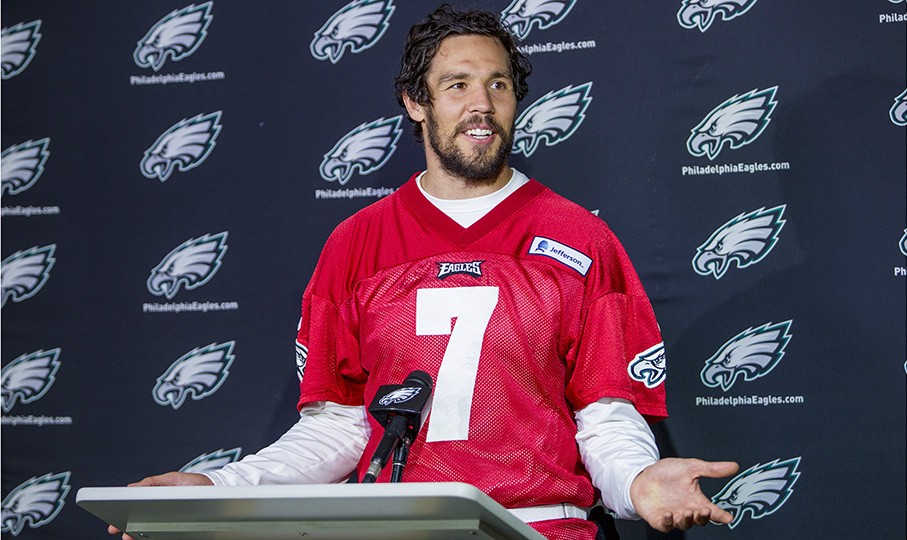Why Sam Bradford May Reject Multi-Year Deals

Sam Bradford. (Jeff Fusco)
Since the end of the regular season, one idea has picked up some steam: the Eagles should use the franchise tag on Sam Bradford, and then trade him to another team.
This theory, according to Joel Corry, a former agent and current contracts/salary cap expert for CBS Sports, is very unlikely to materialize. Corry quickly dismissed the concept because he believes teams would balk at paying Bradford whatever his market value is in addition to sending a draft pick or other compensation to the Eagles.
Instead, Corry thinks Bradford may test the waters in free agency and take a short-term contract.
“I really do see him potentially being on a one-year deal if that market doesn’t develop for him,” Corry said. “He has the luxury of being able to bet on himself. [His agent] Tom Condon is not going to sell out Sam Bradford’s long-term future for what he feels isn’t sufficient money, unless Sam Bradford is adamant about getting a long-term deal some place now. The fact that he’s made all that money, he can be patient.”
Corry added that the exclusive franchise tag for Bradford is currently projected to cost $25.94 million, while the non-exclusive mark would be $19.7 million, but he significantly doubts the Eagles would commit that much guaranteed money. He also estimated the quarterback’s one-year deal could cost about $13 million, which Bradford made this season, so he won’t have to accept a multi-year contract he thinks is less than his actual value.
Fletcher Cox is another player the Eagles may re-sign this offseason, but Corry recommends that Cox slow-play the negotiations and wait on Muhammad Wilkerson’s new deal. The New York Jets defensive end is an unrestricted free agent this year.
However, Corry mentioned that the Eagles’ expected shift from a 3-4 to a 4-3 could potentially hurt Cox’s wallet.
“Switching from defensive end to tackle for franchise tag number is going to be a new wrinkle in the equation,” Corry said. “The Eagles are going to be looking at it from the standpoint of, ‘We’re not going to be franchising you for over $15 million, it’s going to maybe be closer to $13 million.’ The defensive switch is going to penalize Fletcher Cox a little bit, if he has to play out the option year.”
As for Vinny Curry, whom the Eagles are reportedly interested in re-signing soon, Corry expects him to get a deal similar to Brandon Graham, who makes an average of $6.5 million per year.
“Teams like to keep internal salary consistency,” Corry said. “Philadelphia is probably going to be sensitive to what Brandon Graham is making, and try to get Curry in that same ballpark.”
Although Lane Johnson still has one more year left on his deal, Corry said he heard the offensive lineman’s new contract may be done as soon as the end of this week. Johnson’s situation is murky, however, because of the uncertainty of Jason Peters’ future in Philadelphia.
The sooner Johnson moves from right tackle to left tackle, the more money he would make.
“Right tackles make a whole lot less than left tackles. The position Lane Johnson is going to play really dictates where the money is,” Corry said. “I got to imagine it’ll be somewhere closer to good left tackle money than right tackle, particularly because he’s ultimately going to be shifted.”
How much would that be, exactly? Corry mentioned that no right tackle makes $7 million per season right now, whereas “the going rate for a good left tackle” is about $10 million a year.
After the Eagles extended Zach Ertz, it’s also clear to Corry that the team has shifted their strategy with managing their personnel.
“That approach that the Eagles are going back to now with Howie Roseman and [Director of Football Administration] Jake Rosenberg is the old Joe Banner approach,” Corry said. “You find your key young player and you lock them up early, and you go from there. That’s what they’ve gotten back to, and that’s smart.”